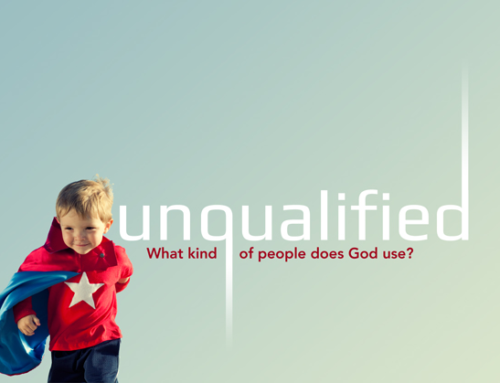Radical Inclusion
September 10, 2015
Categories: Religion/Spirituality
At small group the other night, we were studying Acts 10, which is one of my favorite passages in the Bible. Part of the reason I like the passage is that I think it has huge implications for some of the most pressing issues the Christian church is facing today.
To give some background, the book of Acts gives the history of the early Christian church. One of the major issues the early church was struggling with was that the news of Jesus was spreading beyond the Jewish believers to the Gentiles (i.e. people who weren’t Jewish). The church leaders were trying to figure out what this meant. Was it okay for Gentiles to become Christians? If they did become Christians, could they be fully welcomed into the religious community? Also, if the Gentiles did become Christians and were welcomed into the religious community, would they have to start obeying all the Jewish laws, like getting circumcised and not eating certain foods? These were tricky issues without clear answers. The early Christian church was trying to work these issues out as best they could.
Fast forward to Acts 10. God is up to something. First, an angel appears in a vision to a Gentile named Cornelius. He tells Cornelius that God has heard his prayers, and he should send a few representatives to the town of Joppa to bring back a man named Peter. Cornelius does it (Acts 10:1-8).
The next day, God appears in a vision to Peter. As Peter was sitting and praying, a large sheet comes down from heaven with a bunch of animals, reptiles, and birds that were unclean (i.e., against the Jewish law to eat). A voice tells him to get up, kill the animals, and eat. Peter says “No way!” (Eating these animals would be a big no-no in the Jewish law.) Then the voice says, “Do not call anything impure that God has made clean” (Acts 10:9-15).
Meanwhile, the men Cornelius sent to get Peter show up, and bring Peter back to the home of Cornelius. Although it wasn’t typically acceptable for Jews to associate with Gentiles and go into their home, Peter enters the house of Cornelius as his guest, saying, “You are well aware that it is against our law for a Jew to associate with or visit a Gentile. But God has shown me that I should not call anyone impure or unclean” (Acts 10:28).
Cornelius tells Peter about his own vision. Peter responds with inclusion, saying, “I now realize how true it is that God does not show favoritism but accepts from every nation the one who fears him and does what is right” (Acts 10:34-35).
Peter then shares the story of Jesus with Cornelius and his household. The Holy Spirit came upon those listening, which surprised Peter and the other Jews. The writer of Acts says it this way: The circumcised believers who had come with Peter were astonished that the gift of the Holy Spirit had been poured out even on the Gentiles (Acts 10: 45).
Here in Acts 10, God was moving in a new and inclusive way. The move was radical, and it upended traditional Jewish ideas about who was in and who was out. The move was incredible because it opened up the community of God to, well, everybody.
My question for us to wrestle with is whether there are certain types of people that you (or your church) exclude from your faith community. Are there certain groups of people that you keep on the outside, because it’s more comfortable that way? In the time of the early church, the people who were on the outside were the Gentiles. What about now? Who is on the outside looking in today? Maybe it’s people from a certain racial/ethnic group. Maybe it’s transgender individuals. Maybe it’s gays or lesbians. Maybe it’s the poor. Maybe it’s the elderly or disabled. Maybe it’s the homeless, or people with mental illness.
What would it look like for you to be radically inclusive with that group? What if God is calling you to widen your circle to welcome in those you want to keep on the outside?
Discussion: What types of people make you uncomfortable? What would it look like to be radically inclusive with that group?
Related Thoughts

Subscribe To My Newsletter
Join my mailing list to receive the latest blog posts.
Receive my e-book “The Mental Health Toolkit” for free when you subscribe.





